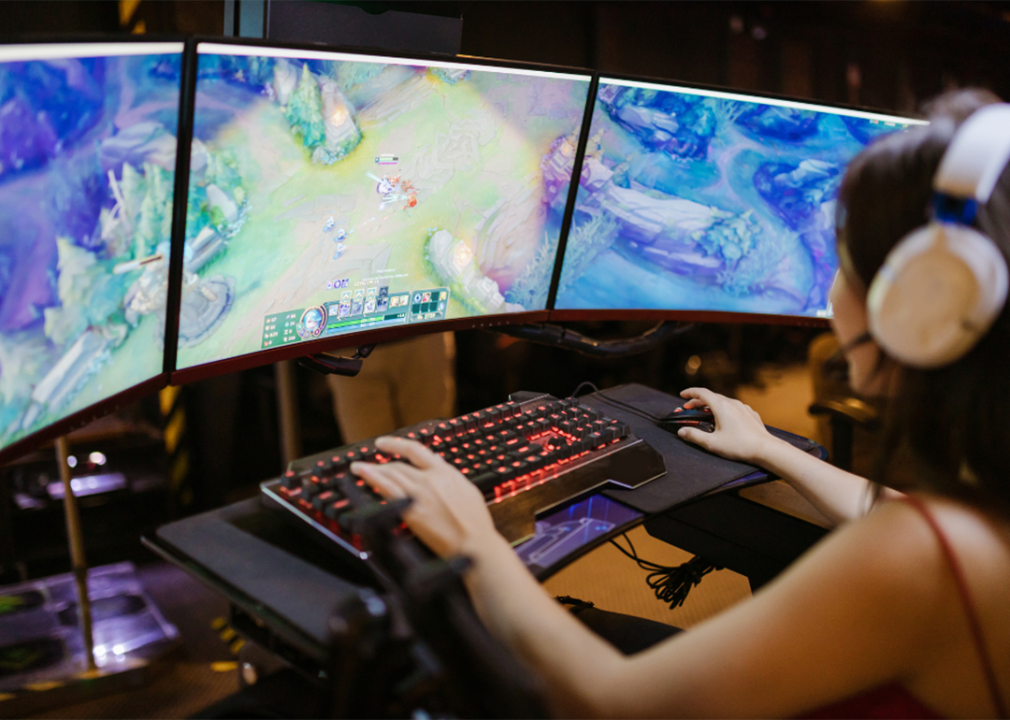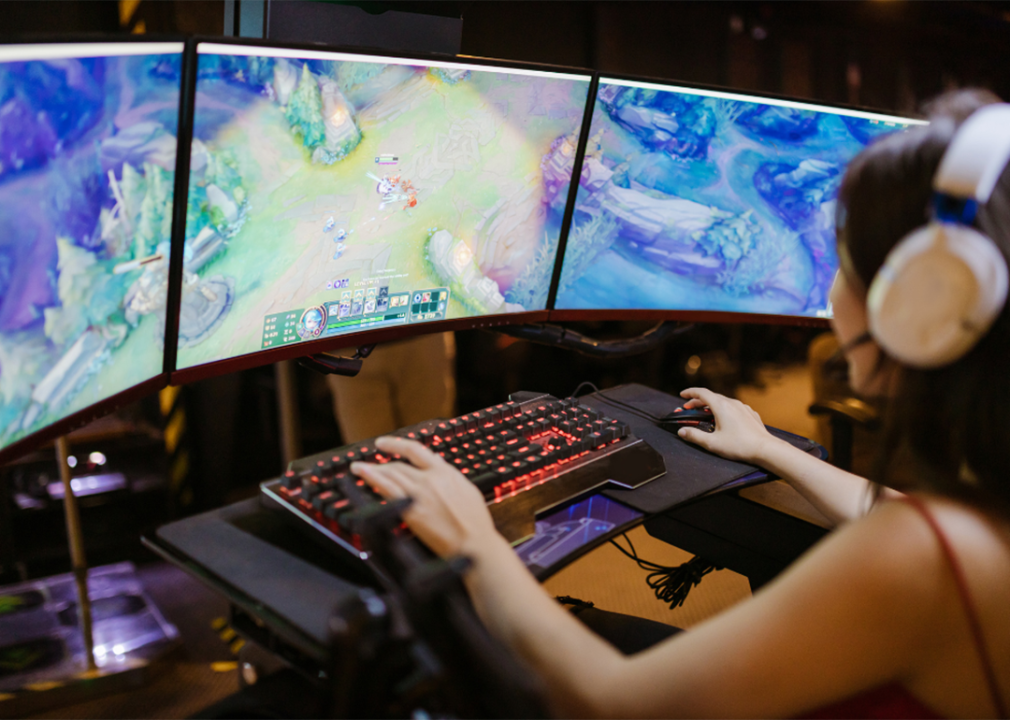Canva
Online gamers want more concrete value from their virtual in-game purchases
A female gamer is focused playing a PC game displayed on three monitors.
Gamers will spend thousands of dollars on virtual items over their adult lifetime – but have nothing physical to show for these in-game purchases.
An Unstoppable Games poll of 2,000 adults who game, conducted by OnePoll.com, found the average gamer will spend $8.74 per month – that’s $104.90 per year – on a total of three purchases. Character skins, weapons and extra lives were cited as the most commonly bought things.
It emerged that 35% of gamers set aside a strict budget for their game playing on a monthly basis, but 39% admit to not having one. Meanwhile, 23% say they often buy things on impulse rather than strategizing their spend.
Despite the desire to own new in-game assets, 35% feel the money spent on these things is wasted because they have nothing to show for it.
The study was commissioned by game developer Unstoppable Games to mark the June 27 launch of its new game, “Influence,” built on the Starknet tech platform, which uses blockchain to ensure players always have the right to sell or gift their in-game purchases.
More than half of gamers (51%) reported feeling frustrated that they can’t gift or resell the items they purchase in a game, with 23% feeling annoyed about how difficult it is to complete transactions in order to make some of their money back.
The OnePoll.com data revealed 37% believe they should have the right to sell in-game assets they buy – like they would with any other game or toy.
As a result, 65% of the respondents would be in support of having the right to resell or gift items, with 31% being most likely to gift them, and the same saying they would just keep them.
When quizzed on blockchain games – a technology that allows players to trade in-game items for cryptocurrency or represent in-game items with NFTs – 48% are familiar with it.
Of those who have played a game built via blockchain, 49% use their purchases for learning, 47% experiment with them, and four in 10 use them as a prototype for developing their own game.
One of the main advantages of playing a blockchain game vs. a mainstream game is that they can be built and maintained by independent members, rather than by a corporation or single entity.
Fully 33% of the respondents don’t think these companies should be able to shut down games whenever they want to when users have spent money during their gaming journey.
If a gaming company wanted to shut everything down, 63% think they should offer refunds for any past purchases. In addition, 40% of gamers reckon the company should consult players first before taking such action, and 34% think they should introduce a vote system.
Having the ability to resell items purchased in-game and make some money back is the top change those polled believe would improve gaming as it is today.
Better storytelling and narrative depth, greater opportunities for user-generated content, and cross-platform compatibility were also voted as ways of enhancing the overall gaming experience.
Methodology
This online survey of 2,000 adults who game was commissioned by Unstoppable Games and conducted by market research company OnePoll, in accordance with the Market Research Society’s code of conduct. Data was collected between 05/15/2024 and 05/20/2024.
All participants are double-opted in to take part in research and are paid an amount depending on the length and complexity of the survey.
This survey was overseen and edited by the OnePoll research team. OnePoll are MRS Company Partners, corporate membership of ESOMAR and Members of the British Polling Council.
This story was produced by Unstoppable Games and reviewed and distributed by Stacker Media.


